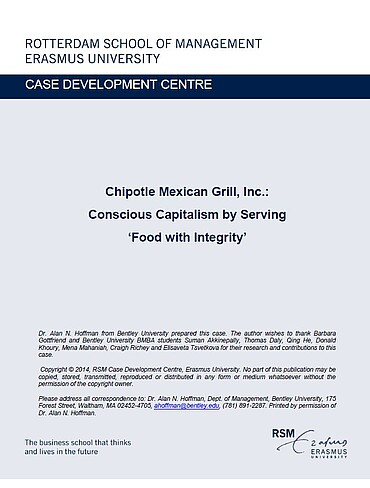Abstract
Founded by Steve Ells in 1993, Chipotle Mexican Grill quickly became one of the fastest growing restaurant chains in US history. People loved Chipotle because of the tasty and healthy food as well as its edgy, trendy, stylish brand image. Chipotle established itself as a successful company practicing “conscious capitalism” by serving “food with integrity” – its supply chain and corporate culture were closely integrated from the time that ingredients were farmed, raised, harvested, and shipped to stores to the time the final product was placed on a customer’s serving tray. By 2014, the fast casual food market in the US became increasingly competitive and crowded with many new entrants, especially traditional fast food players who were attracted by the double-digit revenue growth. Being a public listed company, Chipotle had to meet Wall Street’s high expectations of growth and earnings. Living up to analysts’ expectations was becoming increasingly difficult for Chipotle.
Citation Note
Based on published sources; 16 pages.
Follow the 'handle' link to access the Case Study on RePub.
For EUR staff members: the Teaching Note is available on request, you can contact us at rsm.nl/cdc/contact/
For external users: follow the link to purchase the Case Study and the Teaching Note.
